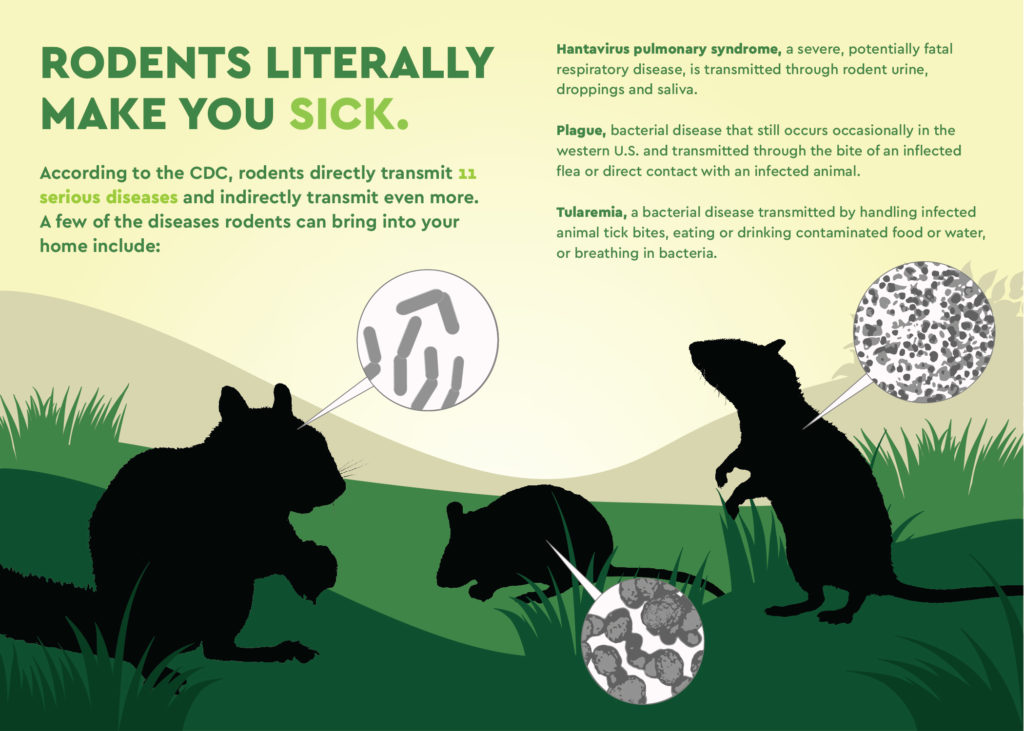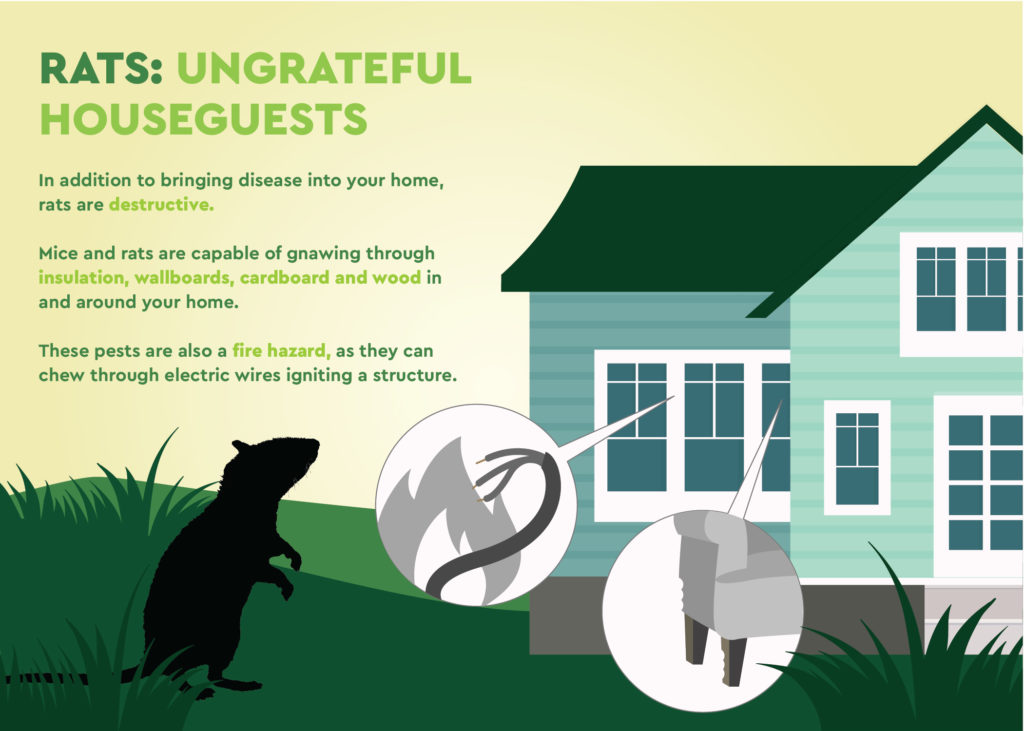Why Managing Rodents Matters
Effective rodent control is essential to protecting the health and well-being of our families and communities. Rodents can spread up to 26 different diseases – directly or indirectly – such as rabies, West Nile and Lyme disease through contact or exposure to their droppings, urine or dander. Rats are some of the most common and destructive rodents impacting public health today.

Not only can rodents spread disease, they can damage homes and buildings, costing billions in damages annually. Mice and rats are capable of gnawing through insulation, wallboards, cardboard and wood in and around your home. These pests are also a fire hazard, as they can chew through electric wires igniting a structure fire.

The closure of restaurants during the pandemic created a need for rats to find new alternative food sources that sit outside of their usual 50-foot to 150-foot radius of their nest. This means rats are not only turning cannibalistic against each other as they fight over food sources, but they are also willing to seek out new places, such as your home, for food.
The specialty industry plays a vital part in the protection of public health through controlling rats and other rodents. Especially in densely populated cities where COVID-19 is more prevalent, the need for regular IPM protocols and use of EPA-approved rodenticides is vital to protecting the health and well-being of our families and communities.
Integrated pest management (IPM) is the best practice for controlling harmful rodents. IPM considers all control and prevention options and follows a process to observe, identify, solve and prevent rodent problems. IPM balances the benefits of cost, control, public health and regulatory compliance.
Rodenticides are part of an IPM approach, as responsible, targeted use of rodenticides is, at times, the best solution. Rodenticides are rigorously tested and reviewed by the Environmental Protection Agency (EPA) before they are made available for sale and use. Read and follow label directions before selecting and applying rodenticides. If you have questions, ask a local professional or extension agent.
How to Spot a Rodent Infestation:
Prevent rodent infestations from harming your indoor and outdoor living spaces with these tips:
Learn more about how to identify and prevent a rodent infestation on the EPA’s website, here.
